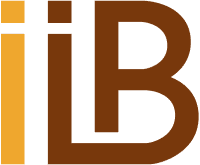When insuring your property against fire damage, it’s not enough to just have coverage, it must be the correct type of coverage. Unfortunately, many families discover this truth too late and receive a denial for their fire claim when they thought they were covered. Why does this happen so often?
Typically, this occurs when the insured has the improper type of coverage or level of coverage.
There are two main types of dwelling fire coverage. These are Homeowners Insurance and Dwelling Fire Insurance. While these two terms may seem interchangeable, they have significant differences that can affect your life in a big way if you need to file a claim. Most homeowners carry a homeowners insurance policy but are not aware of Dwelling Fire Insurance.
Homeowners Insurance
A homeowners insurance policy protects your home and personal belongings inside when damage or calamity occurs. Typically, fire damage is covered under a standard homeowners policy. This policy is designed to cover your primary residence where you live for the majority of the year. It also typically includes coverage for your personal belongings inside the home, inside your vehicle, and other structures such as an in-ground pool and garage or shed structures on the property.
But this coverage does not extend to structures that you own elsewhere. So what type of coverage do you need if you own multiple properties?
Dwelling Fire Insurance
Dwelling fire insurance policies protect dwellings that you own that are not your primary residence. This includes rental property, vacation homes, cabins, and more. A standard policy may or may not cover belongings inside the home. Depending on your coverage type you may need an add-on policy to cover other belongings. A dwelling fire insurance policy can also cover relocation funds for tenants or loss of rent coverage.
DP-1 Basic Form covers on a named perils basis which includes Fire, Lightning, and Internal Explosions (such as stove or water heater). This type of policy typically operates on an Actual Cash Value (ACV) settlement unless otherwise specified.
DP-2 Broad Form covers on a named perils basis but is typically a replacement cost settlement. This coverage is more broad including vandalism and malicious mischief, falling objects, electrical damage, and more.
DP-3 Special Form covers on an open perils basis which means all types of damage are covered except what is expressly excluded. Though in most cases, the personal property still operates on a named perils basis under this type of coverage.
How to Secure the Right Fire Insurance
The best way to ensure that you are insured properly is to secure your insurance through a licensed insurance agent. Agents understand the big and small differences between policies and are experts at knowing which type of coverage you need in your specific situation.
When you speak with an agent from Independent Insurance Brokers Arizona, we complete a thorough questionnaire of all your belongings to ensure that every piece of your dwelling and personal property is covered by the proper insurance.
Statistics show that fire insurance claims typically have the highest payout each year across most insurance companies. Don’t get stuck paying for repairs yourself. Call us now to make sure you have the proper fire insurance coverage.

